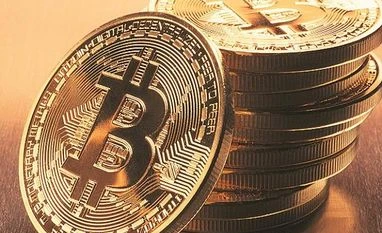The judgment holds that while the RBI had the power to take note of and deal with virtual currencies, the prohibition was excessive since it cut off the lifeline of an otherwise legitimate trade. It also holds the RBI did not show any harm to its regulated entities as a result of their facilitating virtual currency trade and any defects in the functioning of virtual currency exchanges.
The Supreme Court has therefore corrected an anomalous position: That a trade is permitted under law, but is denied access to the essential infrastructure of trade in the modern economy, the banking system.
This puts the ball back in the court of the industry, the RBI, the central government and other government agencies. Industry will need to continue to show that virtual currency trade can be carried on in a safe and responsible manner with self-imposed safeguards, such as adequate customer due diligence. The RBI will need to decide whether to impose less restrictive norms on its regulated entities as a condition to their facilitating virtual currency transactions. An example is the prescription of enhanced customer due diligence norms, which the RBI already has the power to do under the Prevention of Money Laundering Act (PMLA). This approach has been taken by countries such as South Korea.
The Centre will need to consider whether to introduce a new regime to regulate virtual currency transactions. The judgment, in its application of the doctrine of proportionality to the RBI circular, shows this doctrine would also have to be applied to any other measure related to virtual currencies, including any law passed by Parliament. In our submission, an outright ban on virtual currencies would be a disproportionate measure by the government, since many less intrusive measures are available. As recognised by the court, the same committee that eventually proposed an outright ban had in fact initially proposed a detailed regulatory framework to license virtual currency intermediaries like exchanges. A note by the committee had stated, “[v]ery few countries have actually banned [virtual currencies]. A ban might not be in step with India’s position as an important centre of Information Technology services”. It also stated, “[p]roblems related to information asymmetry, concerns around market risks, law enforcement or threat to financial system cannot be adequately addressed through a ban.” One immediate step that could be taken by the government is to designate virtual currency intermediaries as reporting entities under the PMLA.
It is worth remembering that virtual currency transactions do not operate in a complete regulatory vacuum. Several existing laws such as the Consumer Protection Act, Information Technology Act, Foreign Exchange Management Act, PMLA, besides tax, deposit-related and criminal laws apply to the virtual currency domain just as they apply to any other economic activity. In fact, action has already been taken in India under many of these laws against errant persons and entities operating in the virtual currency domain.
However, just as banks, non-banks, payment systems, stock exchanges, securities and insurance intermediaries, and telecom companies are regulated, the government should consider specifically regulating virtual currency intermediaries by licensing and supervision. This should ideally be done by a new expert regulatory body with capability in technology, economics and finance. This will bring the industry within the visibility of regulators, avoiding concerns of a parallel ecosystem operating under the radar. Almost all developed jurisdictions have adopted a regulatory approach to address the same concerns cited by Indian authorities.
Ultimately, all new technologies and innovations challenge traditional policy. Even electricity and motor vehicles initially scared society and regulators. And in a 1948 government of India report, the Indian stock market was found to be plagued with a set of serious, systemic faults. Most recently, the internet has brought and continues to bring policy challenges, like privacy issues, content regulation issues and cybercrime. Virtual currencies too bring with them risks and benefits. They have the potential to result in more efficient and secure transfers of value. They are also used in many blockchain implementations, like Ethereum. There are scores of software programmers in India who have upskilled themselves in this technology, which is part of the progress of the internet and software. Professors from the Massachusetts Institute of Technology have made mathematical breakthroughs to create new virtual currencies. The phenomenon should therefore not be seen as a conduit for nefarious activities.
Republics like ours will always choose to proportionately regulate the risks while preserving the rights of their citizens. The Supreme Court judgment is a powerful affirmation of this principle.
Reddy and Parikh are leaders in technology law practice of Nishith Desai Associates.
Disclaimer: The authors represented the Internet and Mobile Association of India in its petition challenging the RBI circular
To read the full story, Subscribe Now at just Rs 249 a month
Already a subscriber? Log in
Subscribe To BS Premium
₹249
Renews automatically
₹1699₹1999
Opt for auto renewal and save Rs. 300 Renews automatically
₹1999
What you get on BS Premium?
-
Unlock 30+ premium stories daily hand-picked by our editors, across devices on browser and app.
-
Pick your 5 favourite companies, get a daily email with all news updates on them.
Full access to our intuitive epaper - clip, save, share articles from any device; newspaper archives from 2006.
Preferential invites to Business Standard events.
Curated newsletters on markets, personal finance, policy & politics, start-ups, technology, and more.
Need More Information - write to us at assist@bsmail.in
)